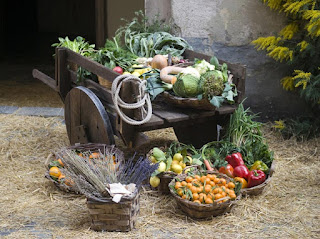Squashes and parsnips were mentioned by Pliny; the Roman cook book of Apicius has over a dozen recipes for squash. If you hollowed out certain squashes and dried the skin, they could become containers, utensils, ornamentation like masks, and even birdcages and musical instruments. Parsnips were common in European gardens until the 16th century.
Turnips were grown for consumption for thousands of years, important to the Classical and Medieval Eras, and making their way to Japan by 700CE.
Cabbages were cultivated Before the Common Era, and were known in the Middle Ages as an inexpensive food that had an unfortunate odor when cooked and an unfortunate side effect when consumed.
The wild pea was found all around the Mediterranean and have been eaten for millennia. Charles the Good, the Count of Flanders, wrote how the consumption of peas was a staple that staved off a famine in 1124-25.
Brussels sprouts were cultivated extensively in Brussels in the 13th century, but were known in Northern Europe since the 5th century.
Onions, garlic, fennel, shallots, leeks, carrots, beans, artichokes, lentils—all were known to the Romans and made use of in Medieval Europe.
Tomorrow I will share some vegetable recipes, and then later look at the more widely used grains.
